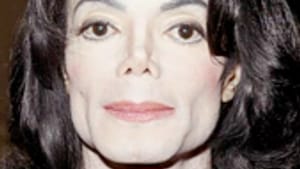Stay in the Loop
BSR publishes on a weekly schedule, with an email newsletter every Wednesday and Thursday morning. There’s no paywall, and subscribing is always free.
The man who had everything (except the world's empathy)
Michael Jackson and his demons

Like many members of my generation, I listened to all of Michael Jackson's songs and liked many of them. But after buying and enjoying both Off the Wall and Thriller, I didn't bother to buy any of Michael Jackson's other solo offerings. After a while his dancing, while still impressive, began to strike me as predictable, especially his repetitive and unwelcome crotch-grabbing. He seemed at that point to have lost the ability to move forward as an artist.
So why am I, a classical pianist, so haunted by the passing of a pop music celebrity I didn't even know? Why am I so saddened by the jokes currently circulating through the Internet, all of them presupposing that Jackson was a child molester?
The answer has less to do with the caliber of his music and more with the torment of a human soul, as expressed in his music. I and millions of others did know Michael Jackson, or thought we knew him, through his songs. But was this King of Pop a man-child, or was he or a shrewd businessman purveying commercialized innocence? A gentle soul who connected with the innocence of children, or a pedophile?
Not even Liz Taylor
Much of the commentary about Jackson's alleged pedophilia blithely overlooked the fact that he was in fact acquitted of the charge of child molesting. His sleepovers with minor boys surely demonstrate poor judgment on his part. But since when does an inability to understand someone's behavior necessarily give us the infallible insight into that person's character that allows us to judge him?
In Childhood, which Jackson described as his most autobiographical song, he mentions a continuing search for something lost and asks that people love him rather than judge his eccentricities. That's a lot to ask— but then, no one has had a childhood like Jackson's. There have been other child stars, to be sure; but few, if any, remained stars through adolescence and into adulthood. The only parallel that comes to mind was Jackson's dear friend, "true love" and fellow addict, Elizabeth Taylor. But even she didn't inspire the level of hysteria that Jackson did, nor did she suffer his level of abuse— not only beatings but being sequestered in a studio or practice facility instead of being allowed to play outside, something he apparently longed for even as the Jackson Five was being groomed for stardom.
In the days after Jackson's death, the mind-body spiritualist Deepak Chopra described him as a "pure soul" who was too vulnerable to deal effectively with life. But Jackson clearly had a dark side, as evidenced in his videos— particularly the infamous "panther sequence" from Black or White, in which Jackson smashes auto windshields while emitting primal screams. Chopra mentioned that his friend Jackson was interested in meditation and other spiritual practices; but he also said that Jackson was addicted to painkillers.
The physical pain was genuine
The physical pain was apparently the result of injuries sustained over the years (not surprising, given Jackson's physical onstage exertions) and perhaps lupus, an autoimmune condition that Chopra says can be the result of childhood stress and trauma, and from which Chopra claims Jackson suffered. Emotional pain was obvious in Jackson's continued mutilations of his face; his repeated plastic surgeries provided either evidence of self-loathing or another form of addiction in itself.
The words of Jackson's songs reveal a man who struggled with demons but wanted to change himself (as in Man in the Mirror) and more (Heal the World, We Are the World). L.A. Reid, the pop music producer, said he had approached Jackson about doing an album of pop songs, and Jackson replied that he had already done that— what he wanted to do was make music that would change the world. Other Jackson songs, like Wanna Be Starting Something and Leave Me Alone, suggest a desire to escape scrutiny: The former talks about rumors while noting that there is no escape from them ("You're stuck in the middle, and the pain is thunder").
Jackson apparently told Chopra that he didn't understand why people were so concerned about eccentricities like wearing a surgical mask (although if he had an autoimmune disorder, this makes sense) when so many people in the world are dying.
The Peter Pan obsession
However much Jackson may have may hated life in a perpetual fishbowl, he clearly loved to be onstage and basked in the adulation of his fans. Yet he apparently turned down a comeback concert two years ago. Perhaps he needed to be in dire financial straits before he could push his apparently pain-wracked body through the rigors of the kind of performance that people had come to expect from him.
But my question persists: Why do people react so viciously when someone, particularly a man, shows weakness, pain or vulnerability in public? Why do people assume that celebrities are no longer humans, simply because they are famous, and are thus fair game for anything and everything?
Underlying most addiction is an attempt to soothe oneself, whether with drugs or by acquiring possessions, something that Jackson apparently did to amazing excess. Jackson was fascinated with Peter Pan and the idea of being a "lost boy." Every addict is a lost boy or girl, in some sense, who refuses to grow up until he gets into recovery. Michael Jackson could have been one of those recovered addicts. He wasn't doomed. But he did suffer unique difficulties. â—†
To read a reply, click here.
So why am I, a classical pianist, so haunted by the passing of a pop music celebrity I didn't even know? Why am I so saddened by the jokes currently circulating through the Internet, all of them presupposing that Jackson was a child molester?
The answer has less to do with the caliber of his music and more with the torment of a human soul, as expressed in his music. I and millions of others did know Michael Jackson, or thought we knew him, through his songs. But was this King of Pop a man-child, or was he or a shrewd businessman purveying commercialized innocence? A gentle soul who connected with the innocence of children, or a pedophile?
Not even Liz Taylor
Much of the commentary about Jackson's alleged pedophilia blithely overlooked the fact that he was in fact acquitted of the charge of child molesting. His sleepovers with minor boys surely demonstrate poor judgment on his part. But since when does an inability to understand someone's behavior necessarily give us the infallible insight into that person's character that allows us to judge him?
In Childhood, which Jackson described as his most autobiographical song, he mentions a continuing search for something lost and asks that people love him rather than judge his eccentricities. That's a lot to ask— but then, no one has had a childhood like Jackson's. There have been other child stars, to be sure; but few, if any, remained stars through adolescence and into adulthood. The only parallel that comes to mind was Jackson's dear friend, "true love" and fellow addict, Elizabeth Taylor. But even she didn't inspire the level of hysteria that Jackson did, nor did she suffer his level of abuse— not only beatings but being sequestered in a studio or practice facility instead of being allowed to play outside, something he apparently longed for even as the Jackson Five was being groomed for stardom.
In the days after Jackson's death, the mind-body spiritualist Deepak Chopra described him as a "pure soul" who was too vulnerable to deal effectively with life. But Jackson clearly had a dark side, as evidenced in his videos— particularly the infamous "panther sequence" from Black or White, in which Jackson smashes auto windshields while emitting primal screams. Chopra mentioned that his friend Jackson was interested in meditation and other spiritual practices; but he also said that Jackson was addicted to painkillers.
The physical pain was genuine
The physical pain was apparently the result of injuries sustained over the years (not surprising, given Jackson's physical onstage exertions) and perhaps lupus, an autoimmune condition that Chopra says can be the result of childhood stress and trauma, and from which Chopra claims Jackson suffered. Emotional pain was obvious in Jackson's continued mutilations of his face; his repeated plastic surgeries provided either evidence of self-loathing or another form of addiction in itself.
The words of Jackson's songs reveal a man who struggled with demons but wanted to change himself (as in Man in the Mirror) and more (Heal the World, We Are the World). L.A. Reid, the pop music producer, said he had approached Jackson about doing an album of pop songs, and Jackson replied that he had already done that— what he wanted to do was make music that would change the world. Other Jackson songs, like Wanna Be Starting Something and Leave Me Alone, suggest a desire to escape scrutiny: The former talks about rumors while noting that there is no escape from them ("You're stuck in the middle, and the pain is thunder").
Jackson apparently told Chopra that he didn't understand why people were so concerned about eccentricities like wearing a surgical mask (although if he had an autoimmune disorder, this makes sense) when so many people in the world are dying.
The Peter Pan obsession
However much Jackson may have may hated life in a perpetual fishbowl, he clearly loved to be onstage and basked in the adulation of his fans. Yet he apparently turned down a comeback concert two years ago. Perhaps he needed to be in dire financial straits before he could push his apparently pain-wracked body through the rigors of the kind of performance that people had come to expect from him.
But my question persists: Why do people react so viciously when someone, particularly a man, shows weakness, pain or vulnerability in public? Why do people assume that celebrities are no longer humans, simply because they are famous, and are thus fair game for anything and everything?
Underlying most addiction is an attempt to soothe oneself, whether with drugs or by acquiring possessions, something that Jackson apparently did to amazing excess. Jackson was fascinated with Peter Pan and the idea of being a "lost boy." Every addict is a lost boy or girl, in some sense, who refuses to grow up until he gets into recovery. Michael Jackson could have been one of those recovered addicts. He wasn't doomed. But he did suffer unique difficulties. â—†
To read a reply, click here.
Sign up for our newsletter
All of the week's new articles, all in one place. Sign up for the free weekly BSR newsletters, and don't miss a conversation.

 Maria Thompson Corley
Maria Thompson Corley